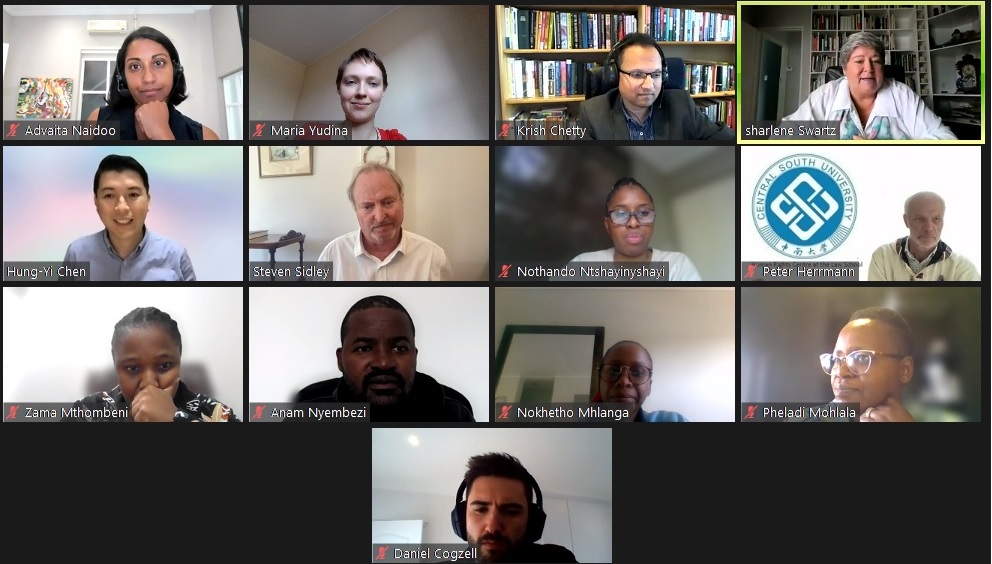Webinar «Articial Intelligence – Ethics, Equality and Employment»
Senior Researcher of the International Laboratory of Digital Transformation in Public Administration Maria Yudina participated in the discussion at the International Webinar on AI organized by Human Sciences Research Council (HSRC).

Serving South Africa for more than 50 years, the HSRC is the largest research institute in Africa focusing on the social sciences and humanities. The HSRC also works towards the uptake of research for policy and impact.
The webinar was chaired by Professor Sharlene Swartz, HSRC, Division Executive – Equitable Education and Economies. Presentations and an active discussion in the webinar chat were united by three common research areas of the event: employment, equality and ethics in the context of the modern AI boom.
During the first session, a panel discussion was held. The list of main speakers: Prof Steven Boykey Sidley (University of Johannesburg, Johannesburg Business School, Professor of Practice); Dr Hungyi Chen (Meta Intelligence, Managing Director. Metaverse Campus at Zhejiang University International Business School, Founder); Dr Rachel Adams (Research ICT Africa, Principal Researcher – AI4D Africa Just AI Centre); Ms Advaita Naidoo (Jack Hammer Global, MD Africa).
The second session was devoted to the Developing a collective AI Implementation Agenda Live, Using ChatGPT. Research manager Krish Chetty coordinated group discussion of all webinar participants on the topic. About 50 people from different countries of the world, taking into account the threats and AI capabilities voiced at the first session, tried to ask ChatGPT a number of queries together. Maria Yudina (HSE University) suggested setting ChatGPT the task of giving out solutions to reduce digital inequality in Russia and South Africa to see if AI will give out a cross-country differentiation of approaches and, if so, how detailed and worth the attention of researchers. Other participants also raised general ethical questions about AI, for example, how people can reduce crime, etc. This was followed by a brief discussion by the participants of the webinar of the answers given by ChatGPT. Krish Chetty made preliminary conclusions about the suitability of using this kind of AI at certain stages of scientific work.
Professor Charlene Schwartz (HSRC) summed up the meeting, emphasizing HSRC's commitment to "digital socialism" – the global exchange of knowledge, including in relation to the use of AI to overcome social inequality and other humanitarian problems of modern societies.
